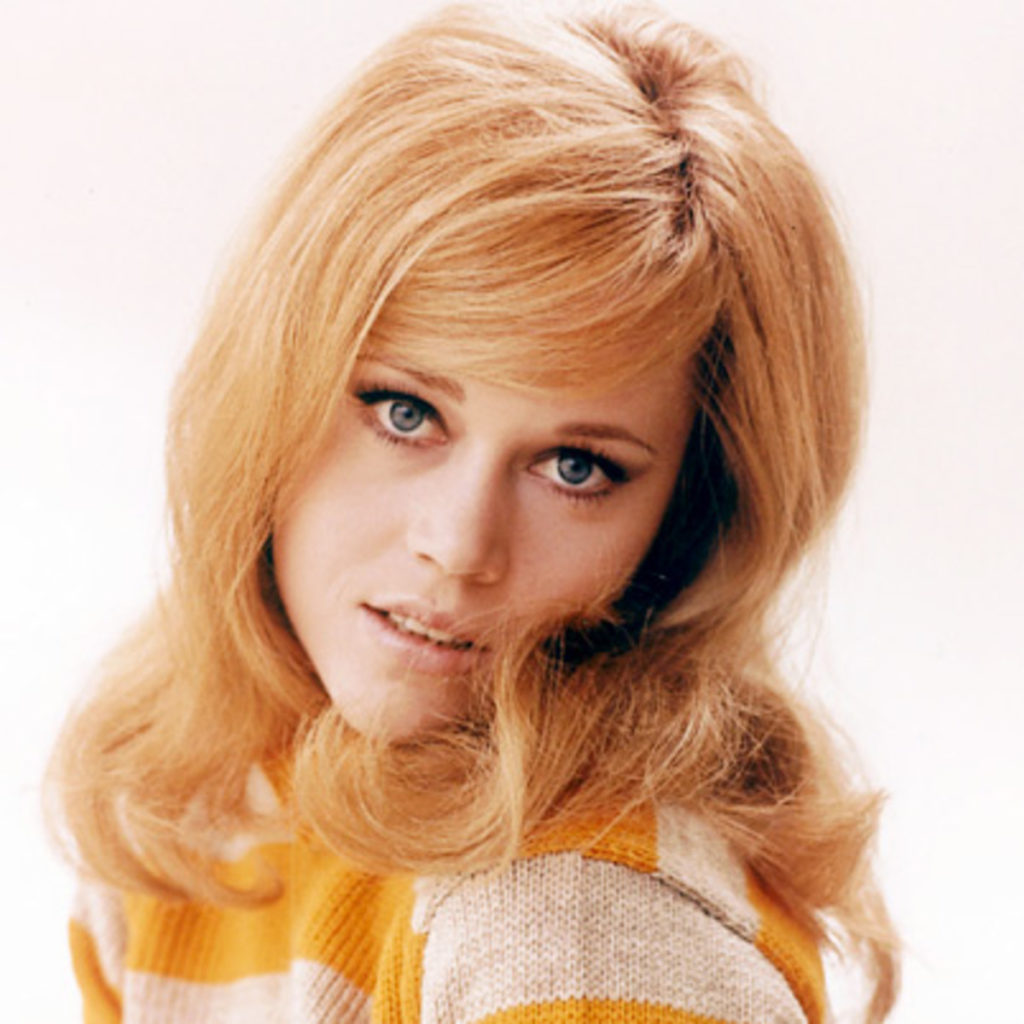 By Hasset Anteneh and Michael Ashcraft —
By Hasset Anteneh and Michael Ashcraft —
Long before her political activism and Oscar-winning acting, Jane Fonda felt she was being pulled toward God.
“I had begun to feel I was being led. I felt a presence, a reverence humming within me. It was and is difficult to articulate,” Fonda says on her website. “Today I think I know what was happening: I was becoming embodied, whole. I had spent 60 years dis-embodied, trying to be perfect so I could be loved. You can’t be whole if you’re trying to be perfect.”
If she was drawing close to God, there were also psychological forces inside her heart that would flout the mainstream. She was, after all, “Hanoi Jane,” a starlet who risked her career by touring North Vietnam to denounce the “atrocities of the Vietnam war against the peace-loving communists.” She even posed for a picture seated on top of an anti-aircraft gun used to shoot down her fellow Americans, enraging many in the U.S.
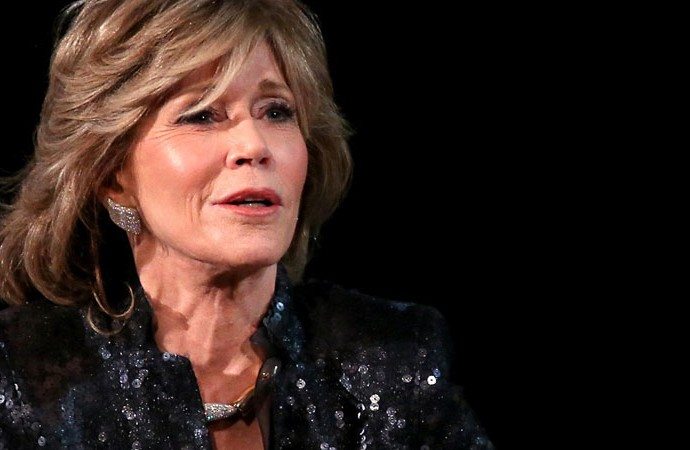 Born “Jayne Seymour Fonda” to actor Henry Fonda in New York City in 1937, Fonda got her start with a Broadway debut in 1960 in the play There was a Little Girl, for which she received a Tony nomination. She hit fame in the ’60s with the films Period of Adjustment, Sunday in New York, and Cat Ballou, among others.
Born “Jayne Seymour Fonda” to actor Henry Fonda in New York City in 1937, Fonda got her start with a Broadway debut in 1960 in the play There was a Little Girl, for which she received a Tony nomination. She hit fame in the ’60s with the films Period of Adjustment, Sunday in New York, and Cat Ballou, among others.
Ultimately, she won two Academy Awards, two Oscars for best actress and two BAFTA Awards. She cycled through marriages: director Roger Vadim (1965-73), leftist politician Tom Hayden (1973-90) and media mogul Ted Turner (1991-2001).
Fonda quickly gained notoriety as a rabble rouser, throwing herself into the midst of the 60s counterculture, with her opposition to the Vietnam war, support for the Black Panthers and backing of Native American causes. She became a strong voice for feminist concerns, and in 2005, she co-founded with Gloria Steinem the Women’s Media Center to advocate equal rights for women.
 Aside from her work on the The China Syndrome and On Golden Pond, Fonda is also known for her workout videos, which were #1 hits and helped boost the fitness craze among baby boomers.
Aside from her work on the The China Syndrome and On Golden Pond, Fonda is also known for her workout videos, which were #1 hits and helped boost the fitness craze among baby boomers.
But while she won accolades and enjoyed the trappings of success, Fonda found true happiness elusive. The actress said that coincidences are what led her to where she is today, and are what created that feeling of always being led by something greater than herself.
Author Abalo Kossi quotes Fonda in the book In Lumine Tuo: Why Believe in God? “What happened to me was, and I remember exactly where I was on the day: I mean, I was really in pain, and I said out loud – I was by myself: ‘If God wants me to suffer like this, there must be a reason.’
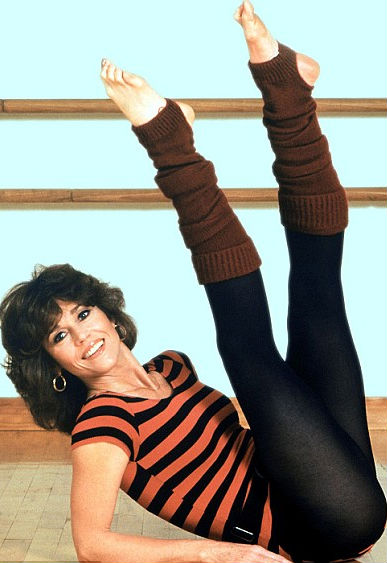 “I did a double take. I thought, ‘Where is that coming from?’ And from that time forward, I became aware of, I call them coincidences. I just became very aware that the absolute right person would come into my life at the moment that I needed to know something. The exact right book would come into my hands. Oftentimes by people I didn’t know. They were like sign posts! And I thought, ‘Has this been going on all along and I just didn’t notice?’
“I did a double take. I thought, ‘Where is that coming from?’ And from that time forward, I became aware of, I call them coincidences. I just became very aware that the absolute right person would come into my life at the moment that I needed to know something. The exact right book would come into my hands. Oftentimes by people I didn’t know. They were like sign posts! And I thought, ‘Has this been going on all along and I just didn’t notice?’
“And along about that time, I heard Bill Moyers say, ‘Coincidences are God’s way of manifesting,’ and that lodged in me. That just really struck me and about that same time, I met Ted Turner and moved to Georgia, Atlanta.”
She had divorced leftist Tom Hayden in 1990, and the following year married
Turner, the founder of CNN. It shocked many when she married the swashbuckling entrepreneur, who often acted crudely and was known as “the Mouth of the South.” He was known to verbally attack Christians and once said, “Christianity is a religion for losers.”
But living in the South with Turner, she encountered many believers. “Now, I had never lived in an environment where people went to church regularly and had a living faith. And I was, utterly fascinated because they were smart people, President Jimmy Carter and his wife, Rosalynn, and Ambassador Andrew Young and many others who were friends with Ted and people of deep faith. And I was married to Ted, a professed atheist, for ten years and for eight of those years, I spent a lot of time listening and talking and asking questions of these people.”
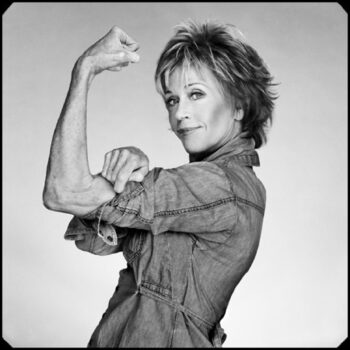
The actress said the connections she made with these people contributed to that constant feeling of being led. “It was a somatic feeling that I was being beckoned, and I often felt that there was a light drawing me. And I’m not a woo-woo kind of person! I’m not a New Age person. I grew up in the fifties. But it was a very powerful feeling.” She said. “I felt my emptiness being filled up with reverence.”
Several Christian friends in Atlanta were among those involved in Fonda’s journey toward Christ. These are said to include Ginny Millner, wife of Georgia Republican leader Guy Millner, and Nancy McGuirk, whose husband is an executive in Turner Broadcasting, according to the Washington Times.
But the key figure in Jane Fonda’s spiritual search was her black chauffeur. When Ted Turner became upset when she started attending Atlanta’s fashionable Peachtree Presbyterian Church, Fonda asked her driver if he could recommend a church.
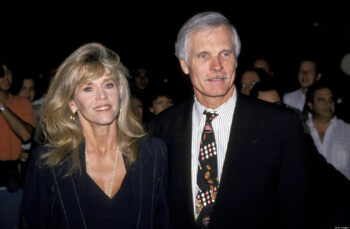
The chauffeur invited her to attend his place of worship, the predominantly black Providence Missionary Baptist Church. In 2000, she began attending the church and earnestly studying the Bible. During this time she read the book of John, which she said left her experiencing grace.
When the Hollywood-shattering news broke that she was “born-again,” it was touted as another “Paul of Tarsus conversion.”
But if Paul defined orthodoxy, Fonda defied it. A hardcore feminist for decades, Fonda bristled at the “patriarchal” language and male-dominance in fundamentalist Christianity. She also resented the explosion of publicity over her “very private, tentative step into religion.”

The Rev. Gerald Durley, pastor of the church was quoted by the Atlanta Journal-Constitution as saying, “I am extremely impressed with the genuineness and sincerity in [her] search for spirituality and wholeness.”
Turner was stunned when Fonda came home one day and announced, “I’ve become a Christian.”
He later told New Yorker Magazine it was his wife’s conversion to Christianity that was responsible for the divorce that ended their nine-year marriage. “That’s a pretty big change for your wife of many years to tell you,” he told the magazine. “That’s a shock.”
As of yet, Fonda’s rejection of orthodoxy includes the leftist narrative of embracing all religions as having an expression of God. And she likes gnostic writings.
But if she stepped away from the confines of sound doctrine, she notably observes on the “About My Faith” page on her website: “I did feel reborn, I couldn’t deny that… I stopped my Bible study classes but was unwilling to renounce faith.”
In March of this year, Fonda may have indirectly cast new light on her drift into a more liberal theology. She had been raped and sexually abused as a child, she told Brie Larson. She said the men in her life were victims of a “patriarchal system.” Is it understandable that a victim of trauma might react against teachings that unintentionally roused painful memories?
She expresses pleasure in discovering “consistencies” between feminism and the Gospel. “I think feminism is another way of teaching what Jesus taught, that we are all full human beings with the right to have our humanity seen and respected,” she said.
“Jesus did not see women as less-than after-thoughts,” she added. “In fact, his friendships with women were revolutionary for that time. The more I study the teachings of Jesus, the more convinced I become that a foundational aspect of his teaching is the equality of women and men in God’s eyes, deserving of equal treatment.
“Look at the many women who followed him, sustained him. Look at the women who were shunned by all others but who Jesus touched and kissed and loved… It was to women that the arisen Christ appeared. After his death, when many Christians fled into the desert to set up Christian communities women outnumbered men 2 to 1.”
“I believe that Christ was the personal incarnation of the divine wisdom,” she says. “My faith is a work in progress.”
While some will criticize her lack of orthodoxy, perhaps Christians should pray for Fonda.
“Christianity is my spiritual home,” she said on Beliefnet. “This is where I’m meant to be. And that I have to discover for myself what that means.”
If you want to know more about a personal relationship with God, go here.
Hasset Anteneh is a senior at the Lighthouse Christian Academy in West Los Angeles. Michael Ashcraft is her journalism instructor.



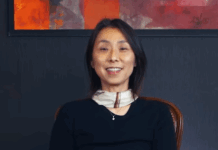
My dear JANE FONDA. Uh, jaw dropping, stunned by this. Amazing. Truly my hatred of Jane fonda has been excessive, as several published letters to editors in Phoenix and Eureka, CA for instance would reveal. Now after so many many years I find Jane is as much a “Christ-ian Sister” as most. Very few of us anymore can be Middle Ages saintly creatures. It was so much easier back then. I think being born again ifrom 1918 on is something of a total miracle in itself. So, I remain stunned and Jane, I totally forgive you for Hanoi. My father was a Green Beret in Nam in 1963-64. My life was the military and everyone in it. I could NEVER forgive you for decades. Be blessed!
This is well-written and relatively sensitive article. Hard to find a good article on a celebrity and his/her own faith. We are all so much in process. If we read as Christians, let’s try not to read into all the nuances, trying to ascertain just ”where she is” (what good comes of that?), but rejoice that she reverences Christ and can see things about him that others will not go close enough to him to see.
Comments are closed.